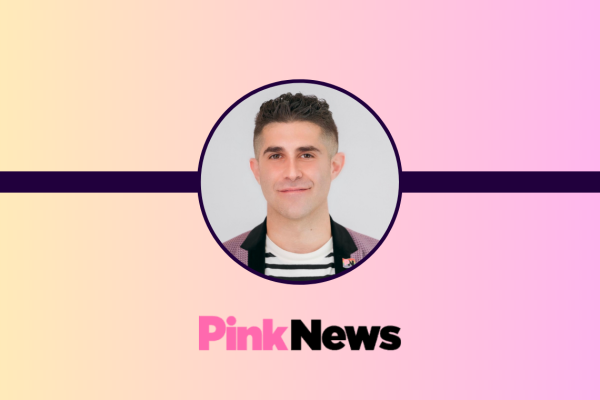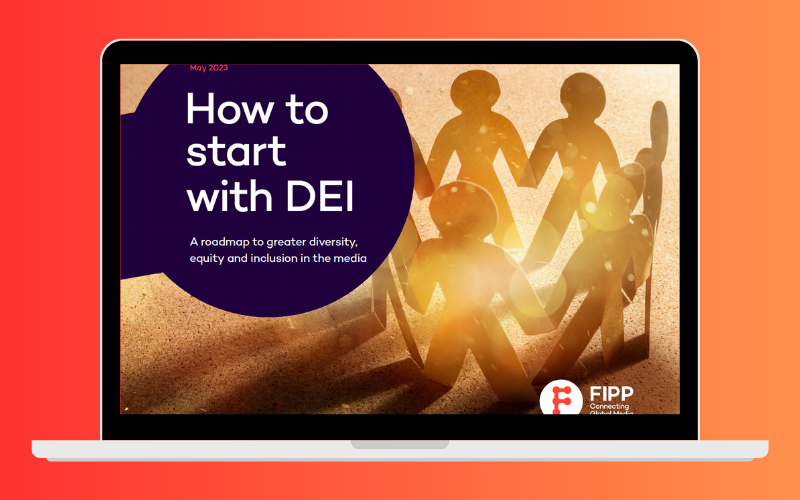Breaking barriers: PinkNews CEO Benjamin Cohen on levelling the playing field for minority owned media
Benjamin Cohen knows a thing or two about moving mountains. The founder and CEO of PinkNews co-founded and chaired Out4Marriage, the successful campaign to introduce same-sex marriage in England and Wales. Turning his focus to transforming the publishing landscape, Cohen is now using his considerable lobbying skills to convince advertising agencies to do trading deals with minority owned media in the same way that they do with legacy publishers.
“If advertisers value the content PinkNews creates, the community we serve and the intersectional audience that consume news, they need to spend more money, not just with us, but with all minority owned and operated media companies to ensure true equity in the media ecosystem,” Cohen tells Charlotte Ricca on the latest episode of the FIPP Media Unscripted podcast.
“I have successfully lobbied for the introduction of same sex marriage in England and Wales, and I had to lobby a lot of Conservative MPs and peers to change their mind. So, I’m quite confident that I will be successful in continuing my lobbying of the ad industry to change the way that it operates.
“And when they do, that will be to the benefit of PinkNews as the largest operator, but ultimately if they end up doing it with us, they’re going to do it for everyone else. It will also be a win for us if other minority owned media companies serving diverse audiences with a diverse range of employees and creators also benefit from it.”
The importance of levelling the playing field is amplified by how quickly demographics are changing around the world, according to Cohen.
“We just want to make sure that there’s an alternative voice representing what we consider to be the new majority – what might historically have been called minority communities. Because of demographic changes in the UK and the US it’s very soon going to be the majority.
“In America they are more advanced when it comes to funding media where the majority of the audience is from a minority community. In the UK, we are quite behind. And what does that do? That means that you’re not funding fairly the media ecosystem. You’re predominantly still funding media that is owned and operated by, in the vast majority, white, cisgender straight men.
“And you’re also not encouraging the diversity of opinions that I think is really important in the media ecosystem. But also, for the brands who end up not doing this funding, it doesn’t make sense because there’s a whole generation of consumers who we talk to every day on PinkNews that are from that audience and are a large proportion of the spend in the economy, both now and in the future. And by not doing it, you’re missing out.”
Changing the narrative
Also driving Cohen is his desire for PinkNews to act as a counter to what he describes as the “legacy media narrative”. “It’s actually really attacking LGBTQ+ people, it’s attacking minorities quite a lot and we want to do something different,” he says.
An example of how Cohen and PinkNews are trying to change the narrative is their contribution to the debate swirling around cancel culture. While being cancelled is seen in some quarters as an over-reaction by thin-skinned Millennials, Cohen points out that the ones actually doing the cancelling are on the other side of the argument.
“The biggest proponents of cancel culture are those who go on tours saying, I’ve been cancelled, when they haven’t,” he says. “People who say: I’ve been cancelled because of my views that might be described as transphobic, homophobic or racist, but here’s my interview on the Today programme explaining why I’ve been cancelled, or here’s my column in The Times or The Telegraph and here’s my book. Then I’m going to do my speaking tour around places that definitely haven’t cancelled me. And if one random place doesn’t want to offer me a stage, I’m being cancelled.
“But by insisting that they should be allowed to speak somewhere, that they’ve got lots of alternative places they could go, they’re actually cancelling the free speech of the people who own the venue or manage the venue and that’s problematic.
“I do believe in media plurality so by no means does PinkNews want to stop, for example, The Times or The Telegraph, or someone from The Guardian saying things that we definitely don’t agree with. We just want to make sure that there’s an alternative voice.”
Download FIPP members report
How to start with DEI: A roadmap to greater diversity, equity and inclusion in the media
Going it alone
A big part of the success of PinkNews has been its ability to find new ways to engage with its audience through brilliant, topical content. The brand has seen astonishing growth on TikTok this year, going from 100,000 followers to more than 400,000 thanks, in large part, to expertly crafted videos breaking down serious issues – both LGBTQ+ related and beyond – in two minutes or less.
“We did something on immigration rules for people with autism in Australia, Canada, the US and the UK and it had 3 million views and prompted a lot of conversation,” says Cohen. “It wasn’t about LGBTQ+ people, it’s about social justice. And from a social justice perspective there are also things that are aligned. So, we do content about racism and it’s not just about people who are LGBTQ+ experiencing racism, it’s about racism generally.
“It’s about minority communities facing discrimination or overcoming discrimination, and we’re all in that same bucket. It’s all about celebrating people’s differences, but also understand the intersectionality of different communities. And that’s what informs our content.”
While the vast majority of the money PinkNews makes is generated on social media platforms through revenue share, the brand is doing everything it can to drive users towards its own website and secure more direct revenue.
“I would say our strategy up until the end of last year was focused on meeting the users where they are and trying to build revenue there. But as we see with the demise of BuzzFeed News, and the significant decline in Vice, just doing that on the social platforms isn’t necessarily the smartest thing to do.
“And while video is still a really important component of what we do on the social platforms, we want to get a much higher proportion of the audience visiting the website on our app and reading the newsletter because that’s our audience that we can control and it’s less impacted by algorithm changes by the social platforms.
“While platforms are still a big proportion of our revenues, our direct revenues are up year-on-year. So, we are really focused on building relationships with brands and agencies to spend with us.”
Open to all
While PinkNews is also exploring ways of increasing the number of people who pay for content on the website beyond its MyPinkNews membership, Cohen points out that there are more things to consider than just the money.
“As we create more content and create clearer differentiation with the rest of the market, there probably is the argument to pay. Maybe in the future that is something that we could do, but from an ethical standpoint and from a mission standpoint, we want our content to be accessible to everyone.
“And as soon as you put a paywall up, you are saying that from an economic perspective, you are discriminating on the basis of people’s ability to pay and that, for the type of publication that PinkNews is, is a challenging position.
“I’m pretty sure if we put an actual hard paywall up, there would be a not insignificant number of people who would pay and it would make money. But what about the millions of other people who value our content but don’t necessarily have the money to spend on that? From a mission and values perspective, it just feels like something that is hard to do.”








